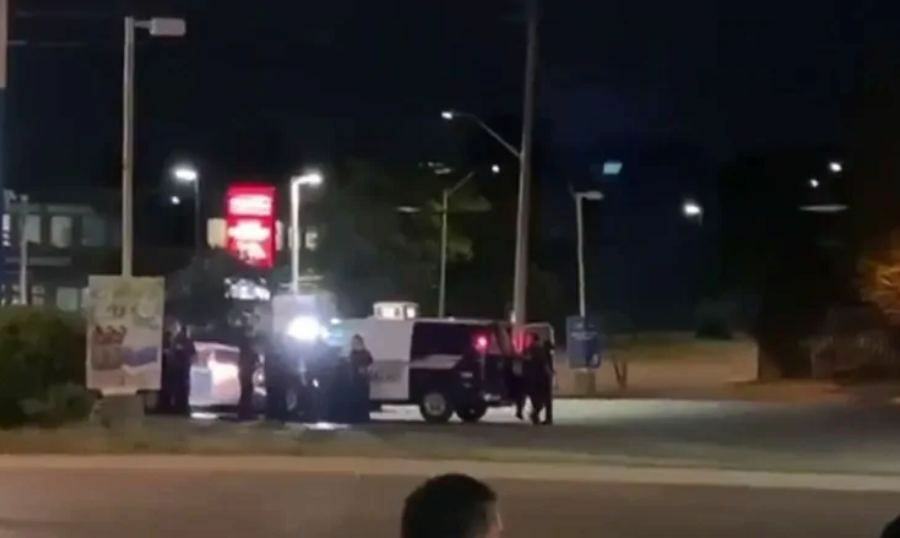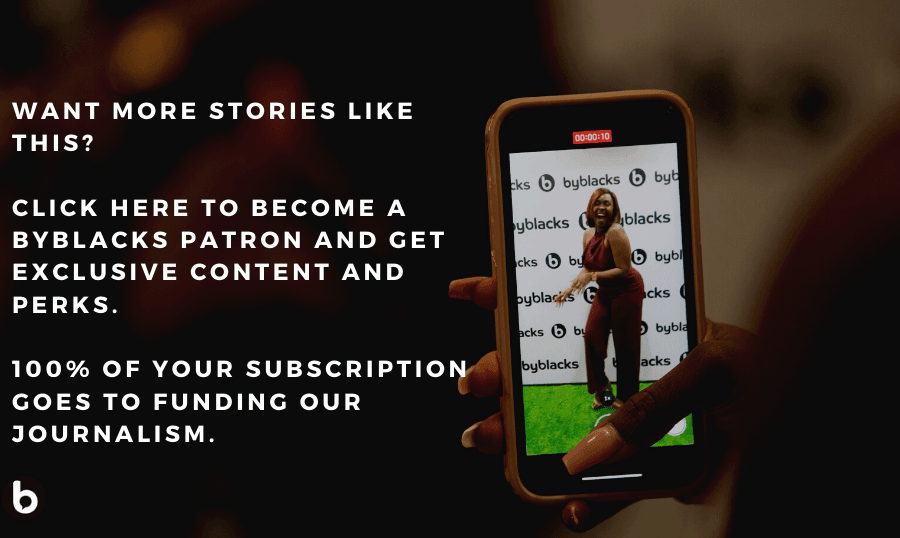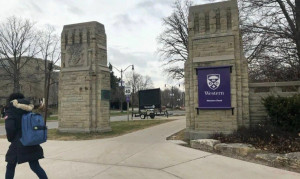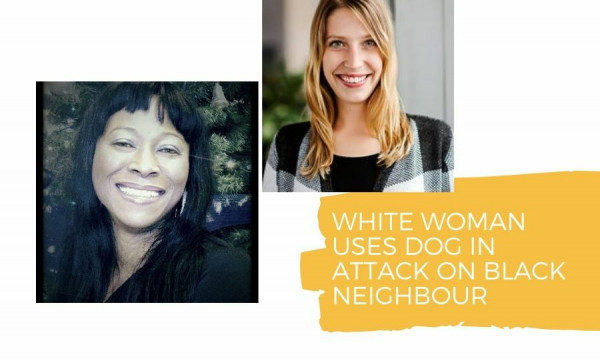What happened?
Sunday July 5th at 1 a.m., a 38-year-old Somali-Canadian man was arrested by local police after a series of events following a traffic stop. The man was initially issued a traffic ticket due to issues with his vehicle’s headlights, after which he allegedly fired a weapon at a police cruiser and drove off to a nearby parking lot.
According to a CBC News interview with Waterloo Regional Police Service Chief Bryan Larkin, officers responsible for the arrest mistook fireworks as gunshots. This led them to pursuing and apprehending the man through extreme physical force and the use of a taser. This man was known to police as someone with mental health challenges. No weapon was found.
Footage posted online by witnesses captures the violence of the police as it played out in a parking lot near a plaza frequented by members of the Somali community. I recently spoke with local Somali Association President Faduma Musse. In this small and tight-knit community, Faduma is one of the strongest voices the community has, rallying for justice while her neighbours are over-policed and continuously surveilled.
Zainab Mahdi: How did you find out about what happened?
Faduma Musse: I came to know about what happened because people started calling me the day of the incident. Everybody – eyewitnesses, community members who were concerned and saw the video – brought it to my attention and started sharing the video with me through multiple social media avenues.
Z: When exactly did people begin to reach out to you?
F: The incident happened around Sunday at 2am, I was informed by Sunday around 5pm.
Z: What do you know about the events that took place in the parking lot?
F: The actual incident happened at Westmount and Victoria. As far as I know, when the police got there, they asked him to get out of the car and put his arms up. He didn’t because he was worried and panicked. They did not de-escalate the situation. Just to back up a bit, when they gave him the traffic ticket, they would have pulled up his profile and they would have seen that he has mental health issues. They also knew who he was. They didn’t de-escalate the situation. They ended up doing much damage to his vehicle – taking out the entire door, breaking the window, pinning him right down on the ground, and then they got physical with him. There were about six to ten cops there and they started beating him up as we see in the video.
After they arrested him, they did an investigation where they realized there was no weapon, there was no gun. They couldn’t find this weapon anywhere. Then they realized, oh, it wasn’t a weapon, it was our mistake – we heard fireworks and plus a light, so we thought it was a weapon. They were quick to judgment and that was why everything escalated to begin with, they thought he had a weapon.
Z: For context, can you explain what you know about the existing relationship between local police and the Somali community in Kitchener-Waterloo? You also mentioned in an article with CBC that you think this incident was sending a message to the Somali Community.
F: I have not seen a strong, cooperative, positive relationship [between police and the Somali community] that equals action, or voices and concerns being legitimately heard. Police are never there to reassure the community of any kind of safety, or work in partnership in securing safety for community members. They are present in communities where minorities live, and that’s the police doing their research to know, where do these so-called minority groups or troublemakers live? They geographically know where these people are; they follow them. They know where the Somalis live and that’s for them to keep tabs on what’s going on. However, they are not in these communities building a sense of belonging or building community connection.
They are there to surveillance, to make arrests, to do undercover work. They are present, but their presence doesn’t necessarily translate to connection at all. And the trust that was there, that was already fragile, is shattered. The Waterloo Regional Police have not reached out to us as a community to validate our emotions. That speaks volumes to how dismissive they are of us as a community. As a community right now, we do not trust that they are there to support and protect us. We see ourselves now as a target group to be honest.
Z: How has the Somali community reacted to the incident? What are the current feelings and thoughts?
F: The feelings are like they have always been, there has always been fear of the police. There has always been that ‘oh, we are a minority group’. And there is a lack of representation within the policing itself – that we are not reflected. And now, it’s gotten to a point where we’re at a major intersection where the population is a Somali, Black, immigrant community. This is why I said that this is a message being sent. They know where everybody lives; they have these areas mapped out. They know who lives in that neighbourhood and they know who those communities represent. And yet they continue to do what they did.
Z: A big thing about this incident is that this individual is someone who has known mental health concerns. I want to ask you about what it means to have mental health challenges within the Somali community itself.
F: Mental health issues definitely exist within the Somali community like any other community. The stigma and the barriers around that have now escalated in this particular situation because there is a lack of compassion, there is a lack of connection to community resources. If those in positions of systemic power such as the police cannot understand and bring awareness to the mental health piece by completely denying that it exists for this individual when they were well aware of it, it just continues that dismissive cycle of it not being relevant. This is a member of our community that has been violated on many levels. His health concerns were completely dismissed and neglected in that particular incident.
Z: Why do you think people come to you in circumstances like this? Why is there a need to have a representative like you in the Somali community?
F: Firstly, I’m very grateful that people did come to me when they did. I’m glad they have that one person to go to when incidents like this happen – where there needs to be advocacy. Where there needs to be somebody who takes quick action. Where there needs to be accountability. Somebody that is the voice within the community and kind of the bridge between the community and the institutions that exist that are there to serve the community members. Somebody to say, hey, that is your job, and I’m not going to tell you how to do your job. But in this instance, you did not do your job. You violated a member of our community’s rights completely. So now we need answers from you. I think people come to me knowing that I will take action. I will not turn a blind eye. I won’t walk away. I will definitely be there to fight the fight with them and be there right alongside them.
Z: And I think there is something to be said about your identity as a Somali woman – who has spent much of her life in the West – being able to navigate the systems and who speaks English fluently.
F: Of course. The Somali community in Kitchener-Waterloo right now is predominantly newcomer families. We have to also acknowledge that demographic right now. There was a time when Kitchener had families who had been settled in Canada for a while, but those families have moved out. A lot of the families right now that are struggling with the systematic racism that exists, are families who are just now coming to Canada and who are coming from war-torn countries, refugee camps, and who really thought that Canada was the place for peace and for a bright future. Now they are realizing that even here there are barriers to their growth – individually and as a community – and they are not understanding why that is. They don’t know what’s happening. They haven’t yet settled; they haven’t learned how to navigate any institutions to be able to understand or know what their rights are.
The way things are happening all around the world right now in terms of police brutality and [police] misusing their power, is that it is documented more. The thing that bothers me is that we always have to prove what happened. So now everything is being documented. People are pulling out their phones and recording, knowing that as a Black person, no one is going to believe you.
Z: How is the family of the individual doing? And how is he doing?
F: He is surface-level okay. Emotionally he is still upset, especially because he was lied about, in terms of how he was portrayed as a criminal [in certain media outlets]. We as a community are working with him on trying to get some sort of justice for him. We are connecting him to a proper lawyer and making sure he is okay and that he is connected to services and his caseworkers. We are making sure he has everything that he needs and that he knows he has the entire community behind him to support him through this situation.
Zainab Mahdi is a writer and community organizer from Kitchener-Waterloo. She is the co-founder and operations coordinator of Project UP, a local initiative that provides young Black Muslim women with mentorship, fitness and art-based activities.

 By Zainab Mahdi
By Zainab Mahdi 




